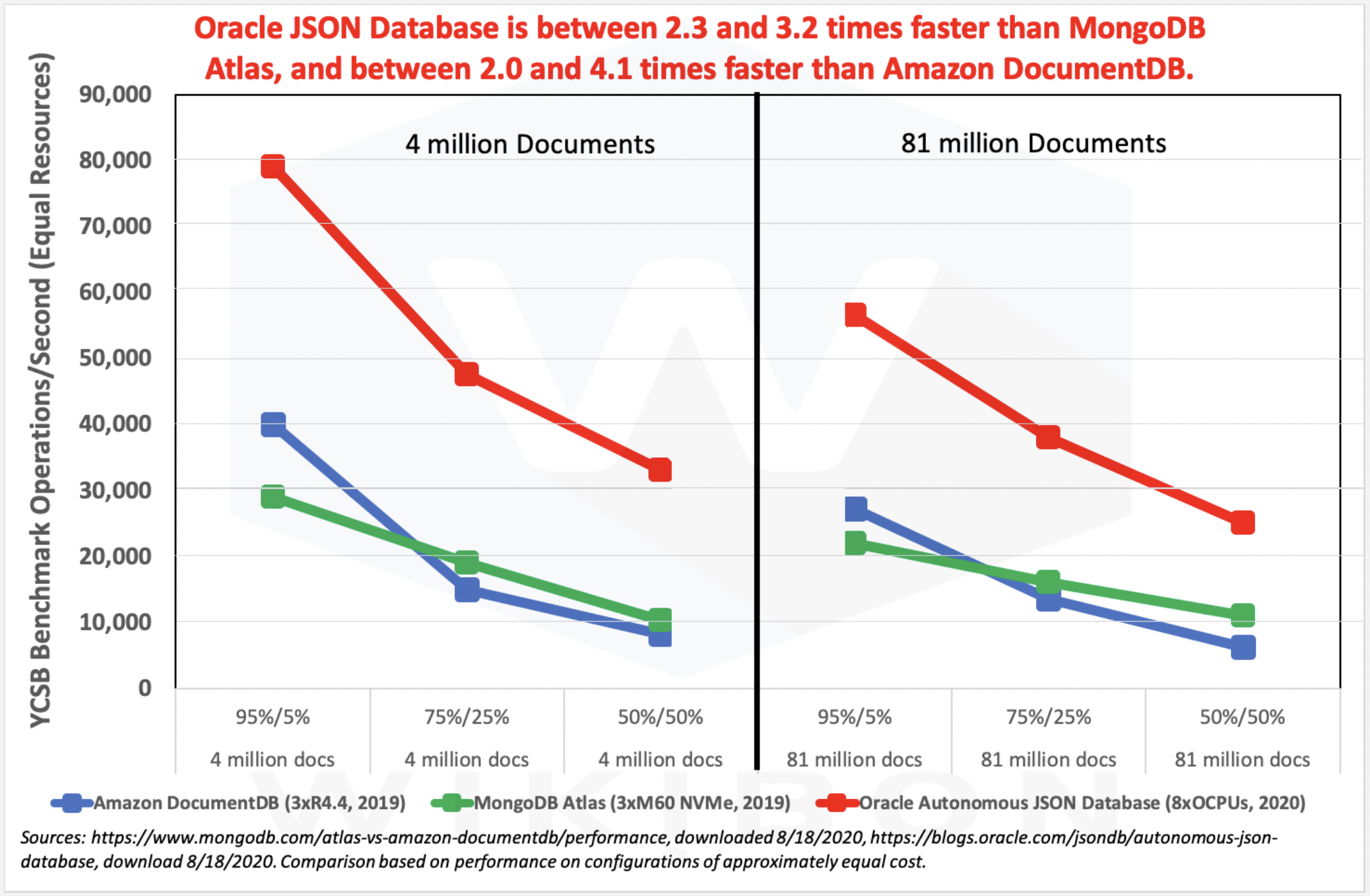About Oracle Autonomous JSON Database and How it is Helping Developers
What is Autonomous JSON Database (AJD)?
Oracle in general has long been synonymous with relational databases, complying strictly with the ACID (atomicity, consistency, isolation, and durability) protocol. However, with the advent of many unstructured (NoSQL) databases, organizations tend to blend both relational and NoSQL databases to manage their business processes. Integrating both types of databases has always been difficult.
To address the issue of integrating the best features of relational and NoSQL databases, Oracle introduced an Autonomous JSON Database (AJD). This cloud-native database service is a unique and powerful solution, designed to meet the needs of modern applications. AJD provides all the core capabilities of NoSQL along with high performance, simple elasticity, high availability, and complete functionality of SQL. It also allows developers to create and interact with JSON data easily. This makes it ideal for web and mobile applications that rely on JSON data. Additionally, the Oracle Autonomous JSON Database service provides high flexibility and scalability. This means that it can handle large amounts of data quickly and efficiently.
Why AJD?
Developers prefer using JSON as it allows changing dynamic schemas easily. JSON documents offer agility at the data level while making application changes. This eliminates the requirement of normalizing data into a fixed relational schema with tables and columns. Oracle’s Autonomous JSON Database service brings in a lot of application features that are not found in most of the NoSQL databases. They include:
- Support for analytics using machine learning and spatial queries
- Advanced security features with nuanced specificity of access control
- Procedural language for rapid DB development with support for special libraries
- A complete low-code development environment (APEX)
- ACID transactions with no time or transaction size limit
- Fast yet simple cross-collection joins and aggregations
- Intelligent search indexes on JSON documents
JSON documents are stored by the Oracle Autonomous JSON Database service in a native, binary format, which is tree oriented. This optimizes it for quick reads and partial updates.
What do we get?
- The best of ATP and ADW with native JSON storage at a low price point
- Document Database with advanced security
- Quick throughput for CRUD operations in the database
- Conforms to the ACID properties for a relational database
- Lightweight programming using native document API
- Hardware effectiveness using parallel optimizations
- Zero administration and independently available scale-out infrastructure
Use cases for Oracle Autonomous JSON Database service:
- E-Commerce – Handheld devices can be used to track orders and delivery information, which can transfer data to the backend in JSON format.
- Mobile applications – Cell phone apps can send and receive data in JSON format, which can be further analyzed for behavioral patterns.
- IoT devices and Home Appliances – These can send and receive any JSON data for faulty parts, replacements, and service reminders.
- Fleet and Vehicle Management – The automated vehicles can send and receive JSON data to report any service failures, vehicle servicing, breakdowns, etc.
- Digital Payment Applications
Comparison with MongoDB (the leading NoSQL player)
MongoDB a document-oriented database that stores data in JSON-like documents is a NoSQL database. It is designed to be scalable and flexible, allowing developers to and retrieve data store easily.
The Oracle Autonomous JSON Database service, on the other hand, is a cloud-based JSON database service. It is built on Oracle’s Autonomous Database technology and is designed to provide automatic tuning, patching, and scaling. It is also designed to support SQL-like queries, making it easier for SQL developers to work with JSON data.
Some of the main differentiating features of Oracle AJD that are yet to be defined in MongoDB are:-

Oracle Autonomous JSON Database service costs 30% less than comparable MongoDB configurations ($2.74/hour vs $3.95/hour). The cost can be further lowered because AJD is elastic and does not depend on fixed hardware shapes. One can choose any number of CPUs for their respective AJD configuration. Some of the features include –
- Nested depth of documents (1024 in AJD vs 100 in MongoDB)
- Unlimited indexes per collection
- Server-side functions like procedures, triggers, functions, etc.
- Unlimited transaction duration and size
- Serverless Auto Scaling
- SQL access over JSON documents
How does it matter for JSON developers?
AJD helps JSON developers in several ways:
- Quick ramp-up: SODA and SQL can be used with Oracle AJD. As a result of the support for ISO SQL/JSON standards, productivity can be ramped up very quickly.
- Self-Driven NoSQL:- The Oracle AJD leverages all the concepts of the Oracle ATP, freeing developers of administrative and monitoring responsibilities.
- Single database benefits: – Oracle Universal Database blends both relational and non-relational methodologies, allowing developers to switch between SQL and NoSQL quickly and efficiently.
- Simplified data management: Oracle Autonomous JSON Database service automates many tasks related to data management, such as indexing, querying, and optimization. This frees up developers to focus on other aspects of application development, such as user interface design, business logic, and security.
- Increased scalability: AJD is designed to handle large volumes of JSON data with high performance and reliability. This means that applications can be easily scaled up or down without impacting database performance.
- Improved flexibility: AJD supports a wide range of data types and structures, making it easier for developers to store and retrieve complex JSON data. It also supports dynamic schema evolution, allowing developers to add or modify JSON data without having to update the database schema.
- Built-in analytics: AJD includes built-in analytics capabilities that allow developers to analyze JSON data and derive insights from it. This can be useful for decision-making applications based on data size.
- Reduced costs: AJD is designed to be a cost-effective solution for storing and managing JSON data. It can run on commodity hardware and requires minimal administration and maintenance, reducing the overall cost of ownership.
Conclusion:
JSON Autonomous Database is a member of Oracle’s Autonomous Database family. With the Autonomous JSON Database, JSON application developers can avail all the benefits of an Autonomous Database including automation, lifecycle management, security, availability, scalability, and elasticity.
Overall, AJD can help JSON developers by simplifying data management, increasing scalability, improving flexibility, providing built-in analytics, and reducing costs. Developers can focus on creating high-quality applications as per the users’ needs.
References
- https://blogs.oracle.com/database/post/introducing-oracle-autonomous-json-database-for-application-developers
- https://blogs.oracle.com/sql/post/how-to-store-query-and-create-json-documents-in-oracle-database
- https://www.zdnet.com/article/oracle-brings-the-autonomous-database-to-json/
Latest Blogs
The energy and anticipation were evident even before entering the arena, and attendees had…
A tectonic shift in wealth is underway, and agility is the key factor that will distinguish…
Educational institutions are at a crossroads where their future hinges on a single question:…
In times of market unpredictability, alternative investments offer a valuable advantage by…




